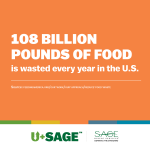It’s easy to find nutrition information, but figuring out which advice to follow is challenging. Claims may be polar opposites, and it can be confusing and overwhelming to separate fact from fiction. SAGE’s Registered Dietitians approach nutrition claims with curiosity and a healthy dose of skepticism to figure out if they’re based on scientific evidence. The next time you hear about a new trend, evaluate it using these tips.
What was said?
Take a look at the claims and benefits listed for products and diet plans. Headlines can be sensationalized for clickbait. See whether there’s an explanation for how to receive the results or benefits.
Some red flags include:
- Using buzzwords (e.g., cleanse, superfood, detox).
- Advertising as a cure-all.
- Promising fast results.
- Listing strict requirements or food rules, like cutting out an entire food group or groups.
Who’s saying it and why?
Reliable information comes from professionals who are educated in nutrition science. Review their qualifications and intentions for sharing the information. Look for any conflicts of interest. Anecdotes and testimonials are opinions, not evidence.
Some red flags include:
- Promoting or selling a product or service to achieve results.
- Having no reputable or relevant credentials or training.
- Giving anecdotal evidence (“I did it, so can you.”).
When was it said?
Nutrition science is constantly evolving, and newer research may prove what was previously “known” to be untrue. Credible information is supported by more than one relatively recent research study.
Some red flags include:
- Claims based on a single research study.
- Claims more than five years old.
Where did you find the information?
Nutrition information is shared nearly everywhere, from talk shows to social media. But not all sources are created equal. Research journals and databases (such as PubMed), health organization websites (such as the Academy of Nutrition and Dietetics), and government websites share information that’s based on peer-reviewed research. Verify claims found elsewhere with a reputable source, such as a website ending in .gov, .org, or .edu.
Some red flags include:
- Lacking supportive research.
- Interpreting association as causation (“High ice cream consumption is associated with high rates of sunburn.” This doesn’t mean that eating ice cream causes sunburn.).
- Translating evidence from animal research to humans.
- Relying on research with limitations (e.g., small sample size, short intervention time, short follow-up period, convenience sampling, limited demographic representation).
How might it apply to you?
If you want to apply nutrition information to yourself or your family, you should consider if it will be sustainable for the long term. Think about time, cost, taste preferences, cultural traditions, safety, stress, and feasibility. Always consult a doctor or dietitian before beginning a diet plan or product.
Some red flags include:
- Posing a risk to an existing health condition or medication interaction.
- Making drastic lifestyle changes.
- Requiring expensive or time-consuming upkeep.
- Anticipating increased stress, especially at mealtimes.
- Cutting out many foods you enjoy.
- Causing social stress or isolation.









